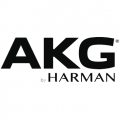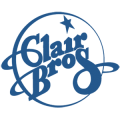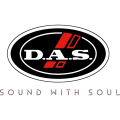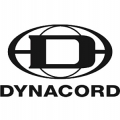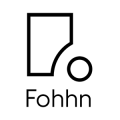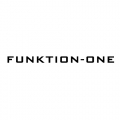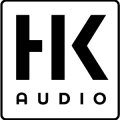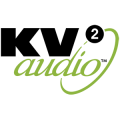ABOUT THE PRODUCT
ABOUT THE MANUFACTURER
GLOSSARY
KARA-PULLBACK
The L-Acoustics KARA-PULLBACK rigging accessory will allow setting the Kara array in a pullback configuration. It connects to the bottom enclosure of the array and to the hook or stinger of an additional motor.
The KARA-PULLBACK is a plate on which is fixed one shackle fitted with 19 mm/0.75 inch-diameter axis.
Professional used lighting equipment.| Professional second hand lighting equipment.| Professional pre owned lighting equipment.
Professional used audio equipment.| Professional second hand audio equipment.| Professional pre owned audio equipment.
Second hand audio gear. | Second hand lighting.
Pro audio equipment, second hand amplifiers, DJ, second hand sound systems, second hand Microphones, second hand Media Players.
Outdoor & Indoor LED screens for sale, LED mobile truck.
Light trussing, Gebrauchte Veranstaltungstechnik, used stage equipment Stage & Theatre lighting products.
Used L-Acoustics
L-Acoustics is a French manufacturer of loudspeakers, amplifiers and signal processing devices for rental and installed sound markets. Headquartered in Marcoussis, just south of Paris, the company has satellite operations in the United States, United Kingdom and Germany, as well as a global Rental Network of production companies deploying and cross-renting its products. The company is also known for providing music festivals with its loud, powerful sounding speakers.In September 1984, Dr. Christian Heil, a physicist in the field of elementary particles with a passion for sound, created an electro-acoustic engineering firm named C.HEIL.TEA, later to be renamed L-Acoustics. In 1989, the company launched its MTD115, a high-performance coaxial loudspeaker for sound reinforcement use.
In 1992, Heil and his team pioneered the field of modern line source array loudspeakers with their V-DOSC system, which benefitted from L-Acoustics’ new Wavefront Sculpture Technology (WST) theory. Based on principles developed by Heil and fellow physics colleague Professor Marcel Urban, WST defined five criteria for design and use of true line source arrays. At the heart of WST is the internationally-patented DOSC waveguide, which was the first high-frequency device capable of creating a rectangular, constant-phase planar output.
In combination with WST, coplanar symmetry - the equivalent of coaxial assembly for HF, MF and LF drivers in vertical arrays - provides a coherent wavefront over the entire horizontal coverage at all frequencies. This behaves as if the sound was radiated by a single, continuous and articulated ribbon, and allows a highly coherent sonic signature in long throw applications, beyond the limits of previously traditional clustered systems.
Although Heil did not invent the underlying theory of the line array, his research and design work that ultimately resulted in the V-DOSC system altered the landscape of loudspeaker design. Today, nearly every professional audio loudspeaker manufacturer has adopted the line array model for their premier touring systems, and Heil is generally recognized as the "father of the modern line array."
Over the years, L-Acoustics has gone on to introduce other products, including the ARCS Constant Curvature Array (1995), dV-DOSC modular line source (1999), Kudo with K-Louver variable directivity (2005), P Series self-powered coaxials (2006), SB28 subwoofer with laminar vents and LA4 and LA8 amplified controllers (2007). The debut of L-Acoustics’ Soundvision simulation software in 2004 enabled system designers to create accurate 3D acoustical models of potential systems using the company’s products.
In 2008, 15 years after the launch of V-DOSC, L-Acoustics introduced its newest flagship system known as K1, designed primarily for large festivals and stadium sound reinforcement applications. Distribution of the earliest K1 systems sold was extremely limited to a small number of touring sound companies that agreed to participate in the manufacturer’s K1/Kudo Pilot Program,[7] providing feedback to L-Acoustics’ R&D team on its field performance.
Since then, the manufacturer has established both its new Rental Network and System Integration Charter, as well as debuted other new products, including the Kara and Kara(i) WST line source enclosures and SB18 and SB18i subwoofers (2010).
The K1 stadium line array system was recognized with the top prize for "Indispensable Technology - Audio" at the 10th annual Parnelli Awards ceremony held at the Rio All Suites Hotel & Casino in Las Vegas on October 22, 2010.
Professional used lighting equipment.| Professional second hand lighting equipment.| Professional pre owned lighting equipment.
Professional used audio equipment.| Professional second hand audio equipment.| Professional pre owned audio equipment.
Second hand audio gear. | Second hand lighting.
Pro audio equipment, second hand amplifiers, DJ, second hand sound systems, second hand Microphones, second hand Media Players.
Outdoor & Indoor LED screens for sale, LED mobile truck.
Light trussing, Gebrauchte Veranstaltungstechnik, used stage equipment Stage & Theatre lighting products.
Octave: The difference between two frequencies where one is twice the other. For example, 200 Hz is an octave higher than 100 Hz. 400 Hz is one octave higher than 200 Hz.
Optical Digital Cable: Fiber optic cable that transfers digital audio signals as light pulses.
Outcue/Outq/Out-Point: These words all refer to the final few seconds of audio signifying the conclusion of the production.
Package: A completed and fully edited audio piece.
Passive: Not active. A passive crossover uses no external power and results in insertion loss. A passive speaker is one without internal amplification.
Phase: Time relationship between signals it’s all relative.
Power Output: A measure, usually in watts, of how much energy is modulated by a component.
Preamplifier: A control and switching component that may include equalization functions. The preamp comes in the signal chain before the amplifiers.
Pre Outs: Connectors that provide a line-level output of the internal preamp or surround processor.
Pre Outs/Main Ins: Connectors on a receiver that provide an interruptible signal loop between the output of the internal preamp or surround processor portion of the receiver and the input of the amplifier portion of the receiver.
Pre/Pro: A combination preamp and surround processor.
Processors: Anything that processes an incoming signal in some way. Surround processors, for example, can decode a Dolby Digital signal to send to an amp so you can hear it.
Pulse Code Modulation: (PCM) a way to convert sound or analog information to binary information (0s and 1s) by taking samples of the sound and record the resulting number as binary information. Used on all CDs, DVD-Audio, and just about every other digital audio format. It can sometimes be found on DVD-Video.
Q-and-A: Question and answer session.
Receiver: Any component that receives, or tunes, broadcast signals, be it NTSC, HDTV, DBS, or AM/FM radio. Typically refers to the single component that includes a preamp, surround processor, multichannel amplifier, and AM/FM tuner.
Reverberation: The reflections of sound within a closed space.
RF: Radio Frequency. Television signals are modulated onto RF signals and are then demodulated by your television’s tuner. VCRs and DBS receivers often include channel 3 or 4 modulators, allowing the output signal to be tuned by the television on those channels. Also, laser discs used an RF signal for modulating Dolby Digital 5.1 soundtracks on some movies. This requires an RF demodulator (usually referred to as an AC3-RF demodulator) before or in the surround processor to decode the signal.
RMS: Root Mean Square or the square root of the arithmetic mean (average) of the square’s set of values. A reasonably accurate method of describing an amplifier`s power output.
SACD: Super Audio CD. Enhanced audio format with up to six channels of high-resolution audio encoded using DSD. Requires an SACD player. Multichannel also requires a controller with six-channel analog or proprietary digital inputs for full playback.
Sampling Frequency: How often a digital sample is taken of an analog wave. The more samples taken, the more accurate the recording will be. You need to sample at a minimum of twice the highest frequency you want to capture. For example, the 44.1-kilohertz sampling rate of a CD cannot record sounds higher than 22.05 kilohertz.
Scener: A radio report in which the announcer is recorded at the same time and place as the background sound of an event.
Sensitivity: A measurement (in dB) of the sound-pressure level over a specified frequency range created by a speaker driven by 1 watt (2.83V at 8 ohms) of power with a microphone placed 1 meter away.
Signal-to-Noise Ratio: A comparison of the signal level relative to the noise level. Larger numbers are better.
Simultaneous Interpretation: This system allows attendees to hear the meeting in their own language.
Sound Bite: A portion of audio of someone speaking.
Sound field: The total acoustical characteristics of a space, such as ambience number, timing, and relative level of reflections ratio of direct to reflected sound RT-60 time etc.
Soundstage: The area between two speakers that appears to the listener to be occupied by sonic images. Like a real stage, a soundstage should have width, depth, and height.
Speaker: A component that converts electrical energy into acoustical energy.
SPL: Sound-Pressure Level. Measured in dB.
Subwoofer: A speaker designed to reproduce very low bass frequencies, usually those below about 80 Hz.
THX: Certification program for home theater equipment. Uses some proprietary features, but mostly assures a base quality level for a given room size. (See THX select or Ultra.) Is compatible with any and all soundtrack formats. Stands for either Tom Holman’s eXperiment, after the engineer who drafted the original standard, or is named after the company’s founder George Lucas first movie, THX 1138. Nobody agrees on which.
THX select: Certification program for speakers and receivers that assures a base level of quality and performance when played in a room that’s between 2,000 and 3,000 cubic feet.
User-Generated Content (UGC): Text, photos, video or audio supplied by the customers of a company.
Voicer: A radio report without background audio taken from a scene or otherwise.
Wrap: A radio report containing both the reporter and an actuality.
Professional used lighting equipment.| Professional second hand lighting equipment.| Professional pre owned lighting equipment.
Professional used audio equipment.| Professional second hand audio equipment.| Professional pre owned audio equipment.
Second hand audio gear. | Second hand lighting.
Pro audio equipment, second hand amplifiers, DJ, second hand sound systems, second hand Microphones, second hand Media Players.
Outdoor & Indoor LED screens for sale, LED mobile truck.
Light trussing, Gebrauchte Veranstaltungstechnik, used stage equipment Stage & Theatre lighting products.

















